Indonesia rejects ISIS:
ISIS IS AN INSTRUMENT OF WESTERN MILITARY ALLIANCE AND AGAINST ISLAMIC PRINCIPLES
by Syarif Hidayat*
The Islamic State of Iraq and al-Sham (ISIS) is an instrument of US-led western military alliance. It is against Islamic (sharia) principles. Prominent Muslim leaders rebuke the Islamic State group’s self-proclaimed caliphate, calling it ‘void’ and ‘deviant’.
Indonesia Ulemas Council (MUI) Deputy Chairman Maruf Amin said the teaching and goal of Islamic State of Iraq and Syria (ISIS) are against the Islamic sharia, as it uses violence to achieve its cause. “ISIS ideology is not acceptable. In its effort to build an Islamic state, ISIS coerces and commits violence. Indonesia has a democratic commitment and does not resort to violence,” Maruf said in Jakarta.
Also Read: The Forty-Four-Days of Glory: Azerbaijan’s Struggle for Justice and Peace
Meanwhile Prof Michel Chossudovsky from Global Research, said “The Islamic State of Iraq and al-Sham Is An instrument of the Western Military Alliance.” “The Islamic State of Iraq and al-Sham (ISIS) –which operates in both Syria and Iraq– is covertly supported and financed by the US and its allies,” he said.
MUI Deputy Chairman said MUI has firmly stated that the ISIS is banned as it has been involved in coercive actions, violence, murder of innocent people, destruction of places considered sacred by Muslims, and undermining the nation state. “Such actions have been condemned by Indonesia, so it is not allowed (based on the sharia) to support the ISIS. However, it is not necessary for MUI to issue a haram fatwa (prohibition advice) because it is already clear that supporting ISIS is haram (not allowed). Something that is already clear need not be issued a fatwa,” he said.
MUI Chairman Din Syamsuddin had earlier appealed to the Indonesian Muslims to avoid and not to be provoked by the radical teachings of the ISIS. “We must increase our awareness and call upon all Islamic bodies to be more alert so as not to be used by the radical group and prevent the infiltration of ISIS ideology,” said Din Syamsuddin.
The council has also affirmed their stance that ISIS is a radical movement using the name of Islam in Iraq and Syria but not upholding the Islamic teachings of “rahmatan lilalamin” or blessings to the whole universe and its contents. “Islamic organizations and boarding schools in Indonesia have been upholding the path of Islam “rahmatan lilalamin” and also God willing, and thank God, the majority of Muslims are not affected by such notions,” said Din.
Also Read: Palestine Solidarity Month: A Collective Movement for Al-Aqsa and Palestine’s Freedom
The ISIS Islamic propaganda must be anticipated and condemned, as Indonesia has a very large population of Muslims. Various Islamic mass organizations and institutions in Indonesia have also rejected the existence of ISIS movements, which are considered potentially divisive to the unity of Muslims and could destabilize the Republic of Indonesia, which upholds the Pancasila ideology. These Islamic organizations also support fast, precise and decisive government steps to ban ISIS in Indonesia, and encourage law enforcement in accordance with the applicable regulations.
An instrument of the Western Military Alliance

Prof Michel Chossudovsky :“The Islamic State of Iraq and al-Sham: An instrument of the Western Military Alliance.” (Pho: MINA File)
Prof Michel Chossudovsky in his article titled “The Engineered Destruction and Political Fragmentation of Iraq. Towards the Creation of a US Sponsored Islamist Caliphate,” published in Global Research, July 01, 2014, writes “The Islamic State of Iraq and al-Sham: An instrument of the Western Military Alliance.”
Update July 1, 2014: The creation of the US sponsored Islamist Caliphate has been announced. The Islamic State of Iraq and Al Cham (ISIS) has been replaced by the Islamic State (IS). The Islamic State is not an independent political entity. It is a construct of US intelligence. (M.Ch. July 1, 2014)
Also Read: Hassan al-Turabi: A Controversial Thinker from Sudan
The Western media in chorus have described the unfolding conflict in Iraq as a “civil war” opposing the Islamic State of Iraq and al-Sham against the Armed forces of the Al-Maliki government. (Also referred to as Islamic State of Iraq and the Levant (ISIL) or Islamic State of Iraq and Syria (ISIS))
The conflict is casually described as “sectarian warfare” between Radical Sunni and Shia without addressing “who is behind the various factions”. What is at stake is a carefully staged US military-intelligence agenda.
Known and documented, Al Qaeda affiliated entities have been used by US-NATO in numerous conflicts as “intelligence assets” since the heyday of the Soviet-Afghan war. In Syria, the Al Nusrah and ISIS rebels are the foot-soldiers of the Western military alliance, which oversees and controls the recruitment and training of paramilitary forces.
The Al Qaeda affiliated Islamic State of Iraq (ISI) re-emerged in April 2013 with a different name and acronym, commonly referred to as the Islamic State of Iraq and Syria (ISIS). The formation of a terrorist entity encompassing both Iraq and Syria was part of a US intelligence agenda. It responded to geopolitical objectives. It also coincided with the advances of Syrian government forces against the US sponsored insurgency in Syria and the failures of both the Free Syrian Army (FSA) and its various “opposition” terror brigades.
The decision was taken by Washington to channel its support (covertly) in favor of a terrorist entity which operates in both Syria and Iraq and which has logistical bases in both countries. The Islamic State of Iraq and al-Sham’s Sunni caliphate project coincides with a longstanding US agenda to carve up both Iraq and Syria into three separate territories:A Sunni Islamist Caliphate, an Arab Shia Republic, and a Republic of Kurdistan.
Also Read: Who Exactly is the RSF Group Shaking Sudan?
Whereas the (US proxy) government in Baghdad purchases advanced weapons systems from the US including F16 fighter jets from Lockheed Martin, the Islamic State of Iraq and al-Sham –which is fighting Iraqi government forces– is supported covertly by Western intelligence. The objective is to engineer a civil war in Iraq, in which both sides are controlled indirectly by US-NATO.
The scenario is to arm and equip them, on both sides, finance them with advanced weapons systems and then “let them fight”. US-NATO is involved in the recruitment, training and financing of ISIS death squads operating in both Iraq and Syria. ISIS operates through indirect channels in liaison with Western intelligence. In turn, corroborated by reports on Syria’s insurgency, Western special forces and mercenaries integrate the ranks of ISIS. US-NATO support to ISIS is channeled covertly through America’s staunchest allies: Qatar and Saudi Arabia. According to London’s Daily Express “They had money and arms supplied by Qatar and Saudi Arabia:” “through allies such as Saudi Arabia and Qatar, the West [has] supported militant rebel groups which have since mutated into ISIS and other al‑Qaeda connected militias. ( Daily Telegraph, June 12, 2014)
While the media acknowledges that the government of Prime Minister Nuri al-Maliki has accused Saudi Arabia and Qatar of supporting ISIS, it invariably fails to mention that both Doha and Riyadh are acting on behalf and in close liaison with Washington. Under the banner of a civil war, an undercover war of aggression is being fought which essentially contributes to further destroying an entire country, its institutions, its economy. The undercover operation is part of an intelligence agenda, an engineered process which consists in transforming Iraq into an open territory.
US intelligence agenda
Also Read: The Two-State Solution (Palestine–Israel) in Historical Perspective
Meanwhile, public opinion is led to believe that what is at stake is confrontation between Shia and Sunni. America’s military occupation of Iraq has been replaced by non-conventional forms of warfare. Realities are blurred. In a bitter irony, the aggressor nation is portrayed as coming to the rescue of a “sovereign Iraq”. An internal “civil war” between Shia and Sunni is fomented by US-NATO support to both the Al-Maliki government as well as to the Sunni ISIS rebels. The break up of Iraq along sectarian lines is a longstanding policy of the US and its allies.
The “War on Terrorism” consists in creating Al Qaeda terrorist entities as part of an intelligence operation, as well as also coming to the rescue of governments which are the target of the terrorist insurgency. This process is carried out under the banner of counter-terrorism. It creates the pretext to intervene. ISIS is a caliphate project of creating a Sunni Islamist state. It is not a project of the Sunni population of Iraq which is broadly committed to secular forms of government. The caliphate project is part of a US intelligence agenda.
In response to the advance of the ISIS rebels, Washington is envisaging the use of aerial bombings as well as drone attacks in support of the Baghdad government as part of a counter-terrorism operation. It is all for a good cause: to fight the terrorists, without of course acknowledging that these terrorists are the “foot soldiers” of the Western military alliance. Needless to say, these developments contribute not only to destabilizing Iraq, but also to weakening the Iraqi resistance movement, which is one of the major objectives of US-NATO.
The Islamic caliphate is supported covertly by the CIA in liaison with Saudi Arabia, Qatar and Turkish intelligence. Israel is also involved in channeling support to both Al Qaeda rebels in Syria (out of the Golan Heights) as well to the Kurdish separatist movement in Syria and Iraq. More broadly, the “Global War on Terrorism” (GWOT) encompasses a consistent and diabolical logic: both sides –namely the terrorists and the government– are supported by the same military and intelligence actors, namely US-NATO.
Also Read: Enchanted by K-Dramas, Dragged into Slander: Time for Muslims to Rise!
While this pattern describes the current situation in Iraq, the structure of “supporting both sides” with a view to engineering sectarian conflict has been implemented time and again in numerous countries. Insurgencies integrated by Al Qaeda operatives (and supported by Western intelligence) prevail in a large number of countries including Yemen, Libya, Nigeria, Somalia, Mali, the Central African Republic, Pakistan. The endgame is to destabilize sovereign nation states and to transform countries into open territories (on behalf of so-called foreign investors).
The pretext to intervene on humanitarian grounds (e.g. in Mali, Nigeria or the Central African Republic) is predicated on the existence of terrorist forces. Yet these terrorist forces would not exist without covert US-NATO support.
Muslim leaders reject Baghdadi’s caliphate
Muslim scholars and movements from across the Sunni Islamic spectrum have rejected the caliphate declared by the Islamic State group, with the fighters receiving scathing criticism from both mainstream religious leaders, and those associated with their former allies, al-Qaeda, Shafik Mandhai, an Al Jazeera journalist who is a graduate of Manchester University, reported.
Also Read: Creating Opportunity and Avoiding Misery; Lesson Learn on Waste Recycling Issue
Assem Barqawi, also known as Abu Mohamed al-Maqdesi, who was released from a Jordanian prison in June after serving a sentence for recruiting volunteers to fight in Afghanistan, called fighters loyal to the Islamic State group’s leader, Abu Bakr al-Baghdadi, “deviant”. Maqdesi, a supporter of the al-Qaeda-affiliated Nusra Front, hit out at the Islamic State group for its brutal methods. “Is this caliphate a sanctuary for the vulnerable and a refuge for all Muslims, or a sword hanging over those Muslims who disagree with them,” Maqdesi said.
In rejecting the self-proclaimed caliphate, Maqdesi, a Salafi, has found himself on the same side as Sufi leaders, such as the Syrian Muhammad al-Yacoubi. In a post on his Twitter account, the Syrian exile similarly described the followers of the group, formerly known as the Islamic State in Iraq and the Levant (ISIL), as “deviators”. “[The] Khilafah state (ISIL) declared is illegitimate,” Yacoubi said. Adding that supporting it is “haram”, or forbidden.
The view was echoed by Qatar-based Egyptian religious leader, Yusuf al-Qaradawi, who said the declaration was “void” according to Islamic law. “A group simply announcing a caliphate, is not enough to establish a caliphate,” Qaradawi said in an open letter published on the website for the International Union of Muslim Scholars, which he heads. There was similar admonishment from the pan-Islamic political party Hizb ut-Tahrir, which believes it is a religious obligation for Muslims to work towards establishing a caliphate.
“The issue of the Khilafah is too great for its image to be distorted or for its reality to be changed merely by an announcement here or an announcement there,” the group said in a statement on its website. Speaking during Friday prayers, Rachid Ghannouchi, the founder of the Ennahda Party, Tunisia’s main Islamist party, added to the chorus of criticism, calling the declaration of a caliphate by followers of Baghdadi a “reckless” act, which gave a “deceptive message”. “Nations do not arise in this ridiculous way,” he told his followers.
Also Read: Between the Treaty of Hudaybiyyah and Ceasefire in Gaza
Indonesia’s Largest Islamic organization calls for action against ISIS groups in Indonesia
Indonesia’s largest Islamic organization Nahdlatul Ulama (NU) has called for firm action against emergence of groups claiming to be part of the Islamic State of Iraq and Syria (ISIS) in Indonesia. “The government must be firm. The police must act,” NU general chairman KH Said Aqil Siroj said stating NU’s stance toward the issue.
He noted that unless stringent action is taken against ISIS, security and integrity of the nation could be threatened. The NU board has rejected calls for joining ISIS and has also appealed to people to reject the propagation of ISIS ideology and its establishment, which has resulted in slander and disruption of the lives of Muslims and interfaith relations in the country, he explained.
A video footage has been uploaded in the social media network YouTube, which had gone viral depicting an Indonesian ISIS fighter calling on fellow Muslims in Indonesia to join ISIS. Aqil Siroj stated that ISIS did not only fight for an Islamic caliphate but also spread an ideology that was against the Islamic ideology of “ahlussunah wal Jamaah.”
Also Read: Peace Cannot Be Achieved Without a Palestinian State
He said ISIS actions in the Middle East of using violence, including killing of clerics who were opposed to their ideology, were obviously not in line with Islamic teaching, which does not tolerate violence. “Islam is a religion that further fights for humanity and love for one another,” he pointed out.As a mass organization, NU, he said, certainly could not act against ISIS and therefore had called on the government to take action, adding that NU, however, will not remain idle in connection with the issue.
“The government must be firm. We as an organization will save community members, the younger generation. We will prevent radicalization. We are moving toward the early prevention stage,” Aqil Siroj added.
Indonesians warned of ISIS infiltration
The Indonesian people are being alerted over the infiltration of the Islamic State of Iraq and Syria (ISIS)’s ideology, which could cause disintegration, conflict, and disharmony in the country. Various parties have also called on the people to prevent the spread of the ISIS influence following an ISIS video propaganda uploaded in the YouTube. Through the 7:32 minute video, the ISIS activists have offered a chance to Indonesians to join ranks in developing a “Daulah Islamiah” (Islamic state).
Also Read: Facing the Wall: Netanyahu and Ambitions Built on Blood
“As a Muslim, I call on the Indonesian Muslims to not let themselves be provoked by the ISIS propaganda, which has entered Indonesia,” former chairman of Nahdlatul Ulama (NU) Hasyim Muzadi said in a written statement. Meanwhile, the Indonesian Council of Ulemas (MUI) for Central Kalimantan has issued an alert of possible infiltration by ISIS members. “We need to be on alert, as ISIS ideology must not infiltrate into our region,” MUI Secretary for Central Kalimantan H Syamsuri Yusuf said.
The ideology of ISIS runs against Islam’s teachings and the country’s Pancasila ideology and also has radicals condoning the use of violence in its struggle that is against Islamic principles. The Indonesian Defense Forces (TNI) Commander Gen. Moeldoko stressed that the ISIS should not penetrate Indonesia, as it could create disintegration and conflict among the people.
“It is a serious matter. There should be no room for the ISIS to exist in Indonesia,” the TNI commander said during a post-fasting gathering at the TNI Headquarters in Cilangkap, East Jakarta. He said the presence of ISIS in Indonesia would pose a threat as it could cause division among people. “Disturbances will arise if it develops in the country. The nation could face the danger of disintegration,” the TNI chief said.
Hence, former NU leader Hasyim Muzadi called on the Indonesian Muslims to not be provoked, let alone join and support the movement. He said the Indonesian Muslims, especially NU members, should not support the ISIS and avoid issues that could divide Muslims. “The ISIS is a new Islamic phenomenon in the Middle East, which is by no means suited to Indonesian principles and Islamic princiles,” Hasyim Muzadi said.
The former chairman of the NU, Indonesias largest Muslim organization, said Indonesia should be cautious because since the reforms era the seeds or embryo of radicalism had been planted in the country, either through mass organizations, movements that had entered the country’s system, or through the medium of terror. “I believe if the embryo are cultivated using a mixture of the ISIS issue and of the rift emerging after presidential election, it will help nurture transnational movements radicalism, which will endanger the safety of the Indonesian Muslims and the integrity of the Unitary State of Indonesia,” he stressed.
The National Agency for Terrorism Prevention (BNPB) has stated that any citizen supporting ISIS will face criminal charges, in line with Article 33 of Law No. 12 of 2006 regarding Indonesian citizenship. It states that radical and terrorist groups including ISIS are serious threats to Indonesia, and in view of that, it has called on all elements to be on alert for possible presence of radical ideologies like the one implemented by ISIS and for its eradication.
According to Hasyim Muzadi, the Indonesian Muslims had better follow Islamic ideology adopted by Indonesia, rather than following those that claim to be the most Islamic, but could justify their actions only for the sake of their group. “The Prophet has never taught Muslims to justify all means. In Islamic history, this is similar to “Khawarij” Group, which holds the principle that they are allowed to destroy anything that is against their will. This group was contrary to Islamic principles,” the NU former leader said.
Therefore, to prevent people from being influenced by the ISIS ideology, the Indonesian government has been urged to block Internet access of the ISIS video in an effort to prevent the spread of terrorism and violent propagation of religion in the country. “We appeal to the government to block the video. Communications and Informatics Minister Tifatul Sembiring has not yet taken necessary action. The video was uploaded in the YouTube offering a chance to join the movement of the ISIS,” legislator Helmy Fauzi of Commission I on foreign affairs of the House of Representatives (DPR) said.
Helmy said the Ministry of Communications and Informatics should take proactive steps in preventing terror acts, for example, by monitoring the activities of Internet accounts, websites, and videos that could be used as a means of propaganda by radical and terrorist groups. “Action should be taken against websites or social media channels that abuse the Internet and endanger national interest. Action needs to be taken without waiting for a complaint or an objection from other parties,” he said.
Earlier, Ismail Cawidu, the spokesman of the Ministry of Communications and Informatics, said his ministry could not block the ISIS video as this action first required a complaint from other institutions. According to Ismail, several ministries and relevant institutions are available that have the rights to lodge complaints, including the Ministry of Foreign Affairs; the office of the Coordinating Minister for Political, Legal and Security Affairs; and the Ministry of Law and Human Rights.
A communications and informatics minister must have the sensitivity in anticipating abuses of social media or cyber networks by terror groups. “Fighting against terrorism needs the involvement of all sides, including proactive steps by the Ministry of Communications and Informatics,” the legislators stressed. He said the involvement of the state in the cyber world was essential to maintain national interest. “The involvement of the state in the cyber world or social media network is not intended to restrict democratic practices but to prevent the spread of hatred and propaganda, which could harm the interest of the nation,” Helmy asserted.
Many Islamic organizations against ISIS
Many Islamic mass organizations in Indonesia do not agree with the Islamic State of Iraq and Syria (ISIS) ideology, Coordinating minister for political, security and legal affairs Djoko Suyanto said. “According to reports I received many Islamic organizations, the hardline and moderate alike, are actually against the ideology,” he said. Even terrorism prisoner Abu Bakar Baasyir denied supporting ISIS when questioned by the police, despite the existence of his letter stating his support to ISIS, he added.
Djoko Suyanto assured that activities and movements of ISIS had from when the issue first emerged been monitored by a number of institutions and ministries concerned including security agencies. The government meanwhile expressed high appreciation to religious leaders and clerics who had shown their alertness towards the presence of ISIS ideology in Indonesia, he said. “ISIS is not a religious but an ideological issue,” he added.
As an ideology he said ISIS runs against the countrys “Pancasila” ideology and principle of unity in diversity. Pancasila has five-principles namely belief in the divinity of God, just and civilized humanity, the unity of Indonesia, democracy guided by the inner wisdom in the unanimity arising out of deliberations amongst representatives and social justice for all of the people of Indonesia.
Military (TNI) commander General Moeldoko has called against allowing the ISIS ideology to grow in Indonesia because it may cause divisions in the community. “This is a very serious issue and therefore it must not be allowed to develop in Indonesia,” he said at a meeting to exchange Idul Fitri greetings with TNI personnel at the TNI National Headquarters in Cilangkap, East Jakarta.
He said the presence of ISIS ideology could pose a threat to the people of Indonesia because it could cause divisions. Religious affairs minister Lukman Hakim Saifuddin has earlier said that ISIS is a movement organization with a radical ideology condoning violence for achieving goals.
He said the ISIS ideology runs against Pancasila and ISIS has declared Pancasila as a “thogut” (idol) that deserves fighting.
“This is already off-limit. Swearing and pledging allegiance to a foreign country or part of a foreign country may cause revocation of citizenship and in view of that we must support law enforcers to work professionally to deal with them,” he said. A video footage has been uploaded in social media network Youtube showing an Indonesian citizen fighting for ISIS calling on fellow countrymen to join ISIS. (T/E01/IR)
Mi’raj Islamic News Agency (MINA)
 *Senior Editor of MINA (He can be contacted via emails: [email protected] and [email protected])
*Senior Editor of MINA (He can be contacted via emails: [email protected] and [email protected])
Bibliotheque:
1. http://mirajnews.com/
2. http://www.antaranews.com/
3. http://www.republika.co.id/
4. http://www.globalresearch.ca/
5. http://www.aljazeera.com/





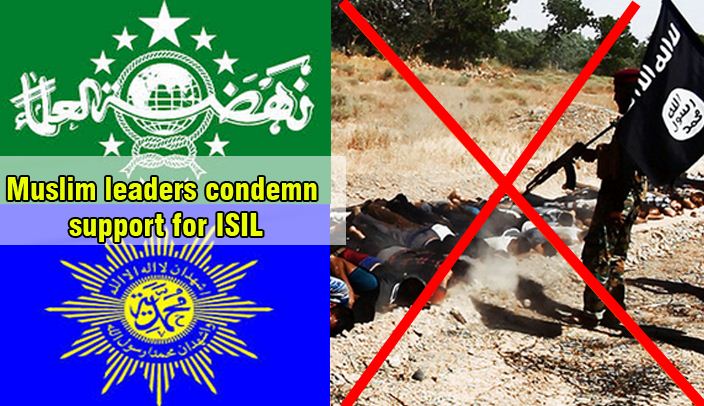








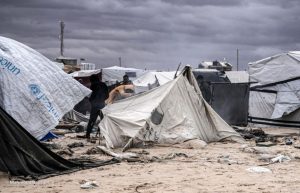
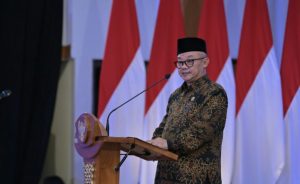

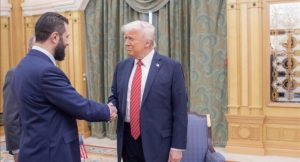
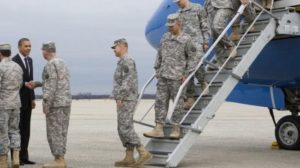
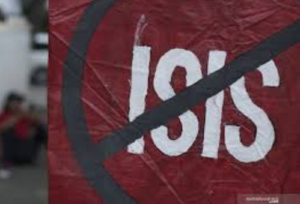
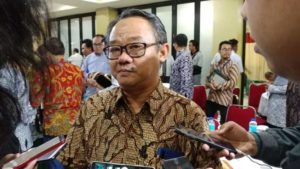







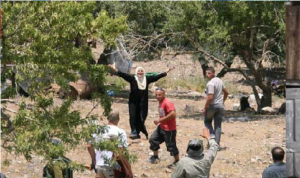
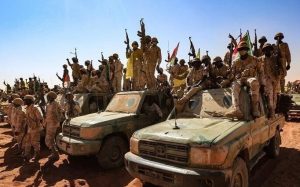
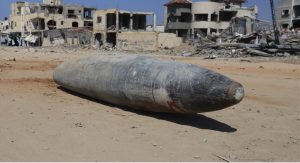




 Mina Indonesia
Mina Indonesia Mina Arabic
Mina Arabic